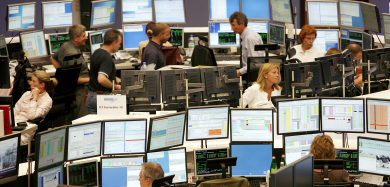The institute’s closely watched indicator of economic sentiment fell by 0.7 points and now stands at minus 41.4 points after minus 40.7 points in the previous month.
Economists polled by Thomson Financial had expected an improvement to minus 38.0 points.
“On the one hand, economic expectations for the next six months for the United States and consequently also for the German export industry have increased considerably. On the other hand, inflationary risks remain high. This should negatively affect private consumption in Germany,” the ZEW said.
“German firms were very successful in the first quarter of 2008. However, the economic momentum should gradually lose speed because of increasing refinancing costs and a strong euro. This should have a negative impact on firms,” ZEW president Wolfgang Franz said in a statement.
A separate indicator showing how the 300 analysts and institutional investors polled each month assess the current economic situation in Germany rose 5.4 points to 38.6 points.
Data since the beginning of the year have suggested that the German economy was holding up surprisingly well despite the strength of the euro, rising energy and food prices, the credit crunch and a slowing of the US economy.
The economy grew 1.5 percent in the first three months of the year, data last week showed last week, for example, well ahead of market expectations, with industrial output rising 2.3 percent.
But Tuesday’s ZEW indicator adds to growing evidence that Germany cannot escape these global headwinds for much longer, and both the government and economists expect weaker conditions as the year progresses.
Jennifer McKeown at Capital Economics said that the fall was a “disappointment” that suggested concerns over the potential impact of the credit crunch and strong euro on the wider economy were mounting.



 Please whitelist us to continue reading.
Please whitelist us to continue reading.